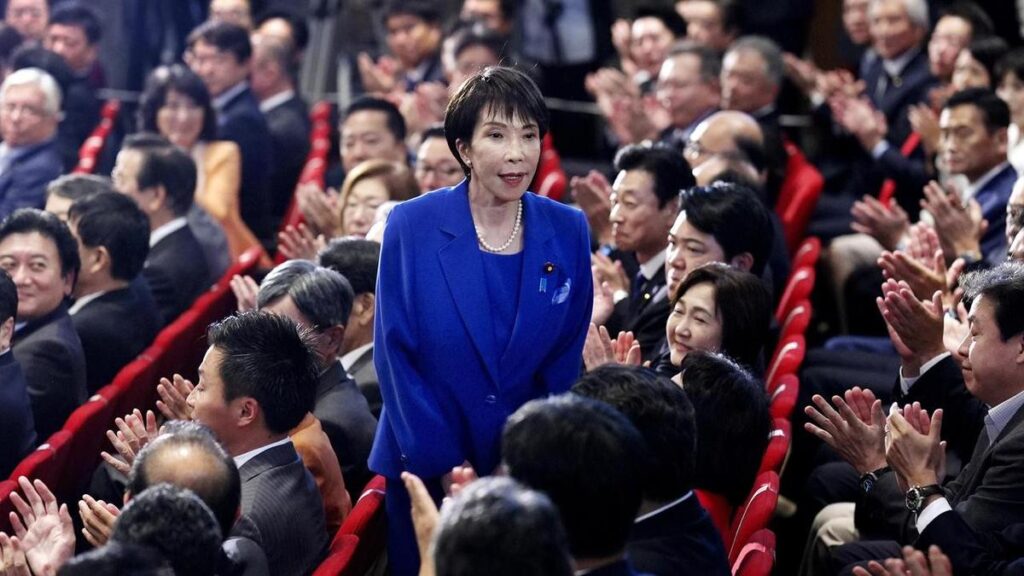
UPDATE: Japan’s political landscape is shifting dramatically as Sanae Takaichi has emerged victorious in a pivotal race to lead the ruling Liberal Democratic Party (LDP), positioning her to become the country’s first female prime minister. This historic win, announced just hours ago, is set to reshape Japan’s political future and could significantly impact investor confidence in one of the world’s most indebted economies.
Takaichi’s surprise victory comes as major political analysts warn that her nationalistic stances may heighten tensions with neighboring China. Furthermore, her administration may reconsider existing trade agreements, including a potentially contentious investment deal with the United States that eased tariffs on Japanese goods during Donald Trump‘s presidency.
At the age of 64, Takaichi now seeks parliamentary approval to succeed Shigeru Ishiba as prime minister, a transition expected to be smooth given the LDP’s status as Japan’s largest political party. However, recent electoral losses mean the ruling coalition no longer holds a majority in either legislative house, making her confirmation uncertain.
In her first address to LDP members following the announcement, Takaichi expressed a mix of determination and resolve, stating,
“Rather than being happy, I feel like the tough work starts here.”
Hosting Trump in Japan later this month is anticipated to be one of her initial actions as leader, signaling a return to a proactive international stance.
A former economic security and interior minister, Takaichi cites Margaret Thatcher as a significant influence, admiring her strong character and convictions. Takaichi met the iconic British leader shortly before Thatcher’s passing in 2013, drawing parallels between their leadership styles.
Takaichi’s political career began in 1993 when she won a lower house seat as an independent, later joining the LDP in 1996. As a self-identified “fiscal dove,” she advocates for increased government spending and tax cuts to address rising living costs, while criticizing the Bank of Japan’s recent interest rate hikes.
Despite promising to enhance female representation in her cabinet, Takaichi’s conservative policies—such as her opposition to same-sex marriage and married couples keeping separate surnames—have raised concerns. These stances resonate more with male voters, leaving her with challenges in appealing to a broader electorate.
Additionally, her controversial remarks about foreign tourists in Nara Park have sparked debate, as she vows to tackle unruly behavior among visitors at this historically significant site.
As Japan braces for Takaichi’s leadership, her economic policies, nationalistic rhetoric, and potential re-evaluation of foreign relations will be closely scrutinized. The coming weeks will be critical as she seeks to solidify her position and implement her agenda amidst a complex political landscape.
Stay tuned for more updates as this story develops.






